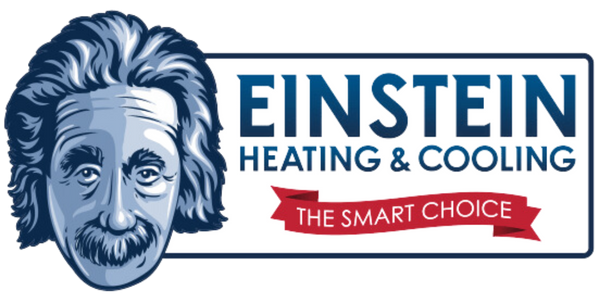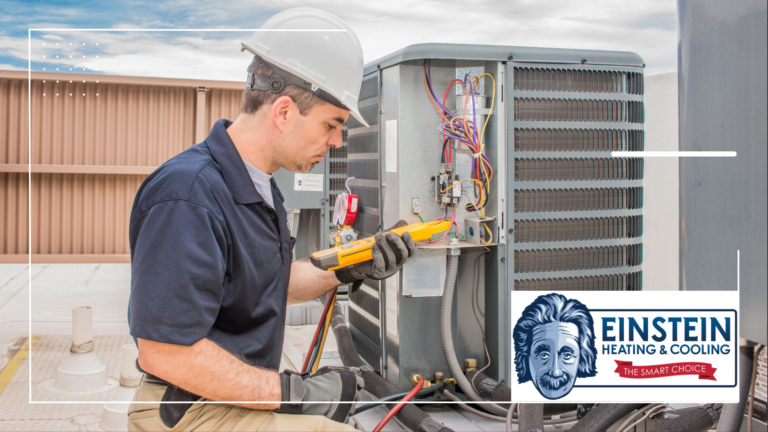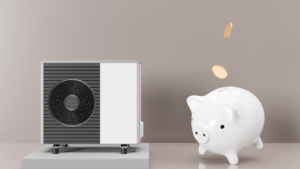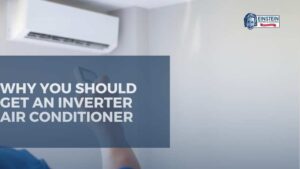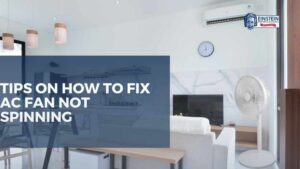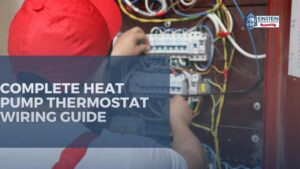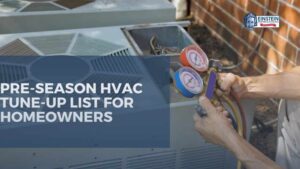Your HVAC system plays a critical role in keeping your home comfortable throughout the year. It’s responsible for heating and cooling your home and ensuring that the air quality is healthy and safe. But, did you know that one of the most important aspects of maintaining your HVAC system is changing its air filter regularly? In this article, we’ll explore the importance of regular air filter replacement for your HVAC system.
- Improved Indoor Air Quality
The primary function of an air filter is to capture and remove airborne particles, including dust, pollen, pet dander, and other allergens, from the air circulating in your home. Over time, the filter can become clogged with these particles, reducing its ability to filter the air effectively. A clogged filter can lead to poor indoor air quality, which can cause respiratory problems, allergies, and other health issues. Regularly replacing your air filter can help to ensure that the air circulating in your home is clean and healthy.
Maintaining a clean and efficient air filter is crucial for improving indoor air quality. Air filters play a vital role in removing contaminants from the air, which can have a significant impact on the health and well-being of individuals in a home or any enclosed space. Here are some key points to consider:
- Effective Particle Removal: Air filters are designed to capture various airborne particles, such as dust, pollen, pet dander, mold spores, and even some bacteria and viruses. These particles can trigger allergies, respiratory problems, and other health issues, particularly for individuals with pre-existing conditions.
- Regular Filter Replacement: As air filters capture these particles, they become gradually clogged and less efficient over time. It’s crucial to follow the manufacturer’s recommendations for filter replacement intervals. Typically, this ranges from every one to three months, depending on the filter type, environmental conditions, and usage. Regular replacement ensures optimal filtration and helps maintain good indoor air quality.
- Improved Respiratory Health: By regularly replacing air filters, you can reduce the presence of airborne irritants and allergens in your home. This helps create a healthier environment, especially for individuals with respiratory conditions like asthma or allergies. Cleaner air can alleviate symptoms, improve breathing, and contribute to overall well-being.
- Energy Efficiency: Clogged air filters can restrict airflow in your HVAC (Heating, Ventilation, and Air Conditioning) system, causing it to work harder to maintain the desired temperature. This can lead to increased energy consumption, higher utility bills, and unnecessary wear and tear on the system. Regularly replacing filters can help maintain optimal system performance and energy efficiency.
- Choosing the Right Filter: There are various types of air filters available, each with different levels of filtration efficiency. High-efficiency filters, such as HEPA (High-Efficiency Particulate Air) filters, are particularly effective at capturing tiny particles. However, they may require more frequent replacement due to their finer mesh. Consider the specific needs of your household, allergies, and the recommendations of your HVAC system manufacturer when selecting the appropriate filter.
In addition to regular filter replacement, it’s also beneficial to keep your home clean, control humidity levels, and ensure proper ventilation. These practices, combined with maintaining a clean and efficient air filter, can greatly improve indoor air quality and promote a healthier living environment.
- Increased Energy Efficiency
When your HVAC system’s air filter is clogged, the system has to work harder to circulate air throughout your home. This increased workload can cause your system to use more energy than it would with a clean filter. By regularly changing your air filter, you can help your HVAC system run more efficiently, which can lead to lower energy bills and a longer lifespan for your system.
Regularly changing your air filter not only helps improve indoor air quality but also contributes to increased energy efficiency. Here’s how it can lead to energy savings and extend the lifespan of your HVAC system:
- Improved Airflow: A clean air filter allows for better airflow within your HVAC system. When the filter is clogged, it obstructs the passage of air, forcing the system to work harder to maintain proper circulation. This increased workload results in higher energy consumption. By regularly replacing the air filter, you ensure unrestricted airflow, reducing the strain on the system and promoting energy efficiency.
- Reduced Energy Consumption: When your HVAC system works harder to compensate for a clogged filter, it consumes more energy. The increased energy consumption leads to higher utility bills. By maintaining a clean air filter, you can optimize the system’s efficiency, allowing it to operate more smoothly and reducing overall energy usage. This, in turn, translates into cost savings on your energy bills.
- Extended System Lifespan: A clogged air filter not only impacts energy efficiency but can also cause additional strain on your HVAC system. When the system has to work harder, it experiences more wear and tear, potentially leading to premature breakdowns and a shortened lifespan. By regularly replacing the air filter, you reduce the stress on the system, helping to extend its operational life and avoid costly repairs or replacements.
- Proper System Functioning: A clean air filter ensures that the HVAC system operates as intended. When the filter is clogged, it can affect the system’s ability to heat or cool your home effectively. This may result in uneven temperatures, reduced comfort, and the system running for longer periods to achieve the desired temperature. With a clean filter, the system can function optimally, maintaining consistent and comfortable indoor temperatures with less energy consumption.
- Manufacturer’s Recommendations: It’s important to follow the manufacturer’s guidelines regarding air filter replacement intervals. These recommendations are often based on the specific requirements and efficiency of the HVAC system. Adhering to these guidelines ensures that your system operates at its best, maximizing energy efficiency and minimizing potential issues.
By regularly changing your air filter, you can help your HVAC system operate more efficiently, reduce energy consumption, lower your utility bills, and prolong the lifespan of your equipment. It’s a simple and cost-effective step towards energy savings and maintaining a well-functioning HVAC system.
- Extended System Lifespan
When your HVAC system has to work harder to circulate air, it can put additional strain on the system, which can lead to breakdowns and costly repairs. By regularly changing your air filter, you can help to reduce the workload on your system, extending its lifespan and reducing the likelihood of breakdowns and repairs.
Regularly changing your air filter is an essential maintenance task that can significantly contribute to extending the lifespan of your HVAC system. Here’s how it helps in reducing strain, preventing breakdowns, and saving on costly repairs:
- Reduced Strain on System Components: A clogged air filter restricts the airflow in your HVAC system, causing it to work harder to circulate air throughout your home. This increased workload puts additional strain on various system components, including the blower motor, fan, and compressor. Over time, this added strain can lead to accelerated wear and tear, potentially causing breakdowns or malfunctions. By regularly replacing the air filter, you ensure proper airflow and reduce the strain on these components, promoting their longevity and overall system health.
- Prevented Equipment Damage: When your HVAC system works with a clogged filter, it may allow contaminants, such as dirt, dust, and debris, to bypass the filter and enter sensitive parts of the system. These particles can accumulate on coils, motors, and other components, leading to reduced efficiency, decreased performance, and even equipment damage. By maintaining a clean air filter, you prevent these contaminants from entering the system, minimizing the risk of damage and the need for costly repairs.
- Enhanced System Efficiency: A clean air filter allows for proper airflow and optimal system efficiency. When the filter is clogged, the system’s efficiency decreases, as it needs to work harder to compensate for the restricted airflow. This reduced efficiency not only leads to higher energy consumption but also contributes to increased wear on system components. By regularly changing the air filter, you help maintain the system’s efficiency, reducing strain and minimizing the chances of breakdowns or malfunctions.
- Timely Detection of Issues: Regularly replacing the air filter provides an opportunity to inspect the HVAC system and detect potential issues early on. During filter replacement, you can visually examine the system for any signs of wear, damage, or leaks. Identifying and addressing these issues promptly can prevent them from escalating into more significant problems, extending the lifespan of your HVAC system and avoiding costly repairs down the line.
- Adhering to Manufacturer’s Recommendations: Following the manufacturer’s guidelines for air filter replacement is crucial for maintaining the optimal performance and longevity of your HVAC system. Manufacturers often provide specific recommendations based on the system’s design and requirements. By adhering to these guidelines and regularly changing the air filter as recommended, you ensure that your system operates within its intended parameters, reducing strain and promoting a longer lifespan.
Regularly changing your air filter is a simple yet effective way to reduce strain, prevent breakdowns, and extend the lifespan of your HVAC system. It’s an important aspect of routine maintenance that can save you from costly repairs and replacements while ensuring the reliable operation of your heating and cooling equipment.
- Reduced Maintenance Costs
Regular air filter replacement can also help to reduce maintenance costs for your HVAC system. When your system is working harder than it should, it can lead to increased wear and tear on the system’s components. This can result in the need for more frequent maintenance and repairs. By regularly changing your air filter, you can help to reduce the workload on your system and extend the lifespan of its components, reducing the need for maintenance and repairs.
Regular air filter replacement can indeed help reduce maintenance costs for your HVAC system. Here’s how it contributes to minimizing maintenance needs and associated expenses:
- Preventing System Issues: A clogged air filter can cause various issues in your HVAC system, such as reduced airflow, increased strain on components, and decreased system efficiency. These issues can lead to more frequent breakdowns and malfunctions, requiring additional maintenance and repairs. By regularly changing the air filter, you prevent these problems from arising, reducing the need for costly maintenance interventions.
- Minimizing Wear and Tear: When your HVAC system operates with a clogged filter, it has to work harder to maintain proper airflow. This increased workload can lead to accelerated wear and tear on system components like the blower motor, fan, and compressor. By regularly replacing the air filter, you reduce the strain on these components, minimizing the likelihood of premature failures and reducing the need for extensive repairs.
- Extending Component Lifespan: Clean air filters promote proper airflow and prevent contaminants from entering the system. This helps protect critical components from damage or excessive wear. By reducing the strain on these components, the air filter replacement helps extend their operational lifespan, reducing the frequency of component replacements and associated maintenance costs.
- Improved System Efficiency: A clean air filter allows for optimal system performance and energy efficiency. When the filter is clogged, the system has to work harder to compensate, resulting in decreased efficiency and increased energy consumption. By regularly changing the air filter, you maintain the system’s efficiency, ensuring that it operates at its best and reducing energy costs. This efficiency improvement also reduces the strain on the system, minimizing the risk of maintenance issues arising from overworked components.
- Early Issue Detection: During air filter replacement, you have the opportunity to inspect your HVAC system for any signs of wear, damage, or potential issues. By addressing these problems promptly, you can prevent them from escalating into more significant and costly repairs. Regular filter replacement allows for regular system inspection, enhancing your ability to detect and address maintenance needs before they become major concerns.
By regularly changing your air filter, you can minimize wear and tear, prevent system issues, extend component lifespan, improve system efficiency, and detect maintenance needs early on. All these factors contribute to reducing maintenance costs associated with your HVAC system, saving you money in the long run.
It’s important to follow the manufacturer’s recommendations for air filter replacement intervals and consult with a professional HVAC technician for any specific maintenance requirements for your system. They can provide guidance on the appropriate filter type and replacement schedule based on your system’s design and usage patterns.
- Improved System Performance
When your HVAC system’s air filter is clogged, it can reduce the system’s ability to circulate air effectively. This can lead to hot or cold spots in your home, uneven heating or cooling, and reduced overall system performance. By regularly changing your air filter, you can help to ensure that your HVAC system is working at peak performance, keeping your home comfortable and energy-efficient.
Regularly changing your air filter is vital for maintaining optimal system performance in your HVAC system. Here’s how it helps improve system performance and ensure a comfortable and energy-efficient home:
- Proper Airflow: A clean air filter allows for unrestricted airflow within your HVAC system. When the filter is clogged, it obstructs the passage of air, leading to reduced airflow. This restriction can result in uneven distribution of conditioned air throughout your home, causing hot or cold spots and an overall discomfort. By regularly replacing the air filter, you ensure proper airflow, enabling your HVAC system to deliver consistent and balanced heating or cooling to every area of your home.
- Balanced Temperature Control: A clogged air filter can hinder the HVAC system’s ability to effectively heat or cool your home. Uneven heating or cooling can occur when restricted airflow prevents the system from reaching and maintaining the desired temperature in all areas of your home. By maintaining a clean air filter, you enable the HVAC system to perform optimally, resulting in more even and balanced temperature control throughout your living space.
- Enhanced Energy Efficiency: A clean air filter plays a crucial role in maintaining energy efficiency in your HVAC system. When the filter is clogged, the system has to work harder to compensate for the reduced airflow. This increased workload leads to higher energy consumption and, consequently, higher energy bills. By regularly changing the air filter, you help the system operate efficiently, reducing energy waste and promoting energy savings.
- Consistent System Operation: A clogged air filter can cause strain on various components of your HVAC system, such as the blower motor and fan. This strain can lead to increased wear and tear, resulting in potential malfunctions or breakdowns. Regularly replacing the air filter helps reduce the strain on these components, ensuring smooth and consistent system operation. This helps prevent unexpected system failures and the need for emergency repairs.
- Extended Equipment Lifespan: By regularly changing the air filter, you reduce the strain and stress on your HVAC system’s components. This helps prolong their operational lifespan, avoiding premature breakdowns and extending the overall lifespan of the system. With proper maintenance and care, your HVAC system can provide reliable performance for a longer period, saving you from the expense of early replacements.
Regularly replacing your air filter is essential for maintaining optimal system performance, balanced temperature control, energy efficiency, and an extended equipment lifespan. It ensures that your HVAC system operates at its peak, keeping your home comfortable, and helping you save on energy costs. Be sure to follow the manufacturer’s guidelines for filter replacement intervals and consult with a professional HVAC technician for any specific recommendations related to your system.
- Cost-Effective Maintenance
Replacing your air filter is a simple and cost-effective maintenance task that can have a significant impact on your HVAC system’s performance and lifespan. Air filters are relatively inexpensive, and replacing them is easy and can be done by most homeowners. By making air filter replacement a regular part of your HVAC system maintenance routine, you can ensure that your system is operating at peak performance and avoid costly repairs and maintenance down the line.
Regularly replacing your air filter is a cost-effective maintenance task that offers significant benefits for your HVAC system. Here’s why it is a worthwhile investment:
- Affordable Cost: Air filters are generally inexpensive, especially when compared to the potential costs of repairs or system replacements. The cost of replacing an air filter is relatively low, making it an affordable maintenance task for homeowners. Considering the benefits it provides in terms of system performance and energy efficiency, the cost of air filter replacement is minimal compared to the potential savings it can generate.
- Easy Replacement: Air filter replacement is a simple task that most homeowners can easily perform themselves. Manufacturers provide instructions on how to replace the filter, and it typically involves opening the filter compartment, removing the old filter, and inserting a new one. This DIY approach saves you from hiring professional help, further reducing maintenance costs.
- Improved Efficiency and Performance: Regularly replacing the air filter helps maintain optimal airflow and system performance. A clean air filter allows your HVAC system to operate efficiently, ensuring proper temperature control and reducing strain on system components. Improved efficiency translates into energy savings and lower utility bills, making air filter replacement a cost-effective measure in the long run.
- Extended System Lifespan: By regularly changing the air filter, you can help extend the lifespan of your HVAC system. A clogged filter can lead to increased wear and tear on system components, potentially resulting in breakdowns and expensive repairs. By reducing strain on the system through proper filtration, you can avoid costly repairs and replacements, saving you money in the long term.
- Prevention of Major Issues: Regular air filter replacement allows for the early detection of potential issues within your HVAC system. During the replacement process, you can inspect the system for any signs of wear, damage, or leaks. By addressing these problems early on, you can prevent them from escalating into more significant issues that require expensive repairs or replacements.
Incorporating air filter replacement as a regular part of your HVAC system maintenance routine is a cost-effective strategy. It helps optimize system performance, improve energy efficiency, extend the lifespan of your equipment, and prevent major issues that can lead to costly repairs. By investing a small amount in air filter replacements, you can save significantly on potential maintenance and repair costs in the future.
In conclusion, regular air filter replacement is a critical aspect of maintaining your HVAC system’s performance and lifespan. By improving indoor air quality, increasing energy efficiency, extending system lifespan, reducing maintenance costs, improving system performance, and providing cost-effective maintenance, regular air filter replacement can have significant benefits for homeowners. So, be sure to check your HVAC system’s air filter regularly and replace it as needed to keep your system operating at peak performance and your home comfortable and healthy.
